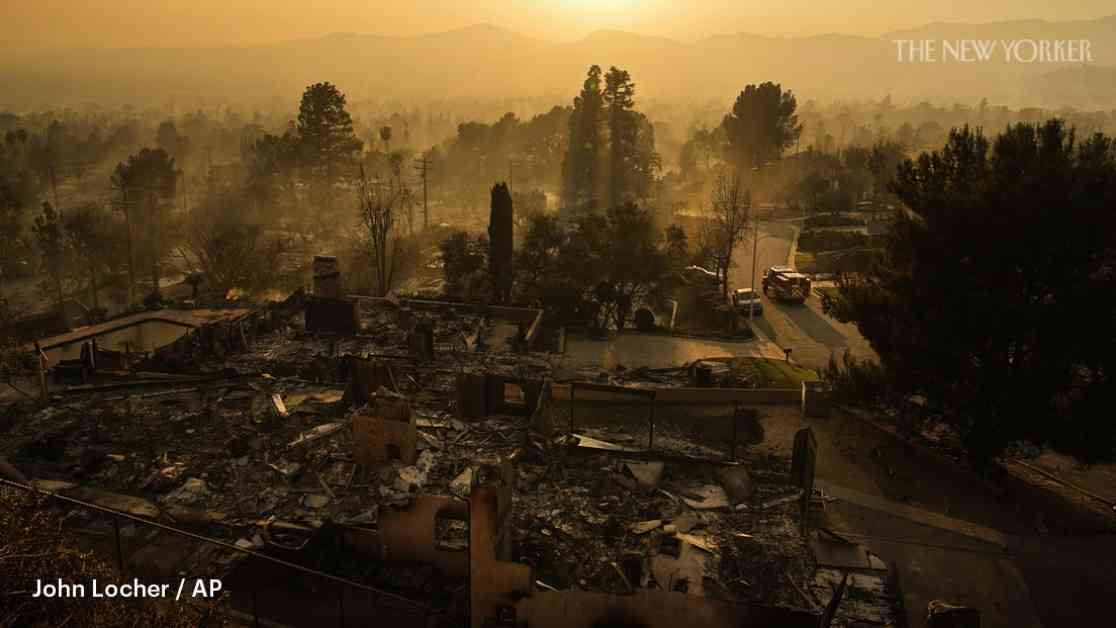Los Angeles Faces Climate Whiplash and Increased Fire Risks
The city of Los Angeles is currently grappling with the devastating impacts of climate change, with a series of wildfires wreaking havoc on the region. The recent fires, including the Palisades Fire, Eaton Fire, Hurst Fire, Lidia Fire, and Sunset Fire, have broken records for the amount of land burned, structures destroyed, and property value lost. These fires have raised concerns about the city’s preparedness for such disasters and have sparked a blame game among various officials.
Blame Game and Finger-Pointing
Some have pointed fingers at Los Angeles Mayor Karen Bass, who was out of the country when the fires broke out. Others, including former President Donald Trump, have criticized California Governor Gavin Newsom, making unfounded claims about water management decisions. Newsom, in turn, ordered an investigation into the Los Angeles Department of Water and Power for leaving a reservoir empty during repairs. The Los Angeles Fire Department has also faced scrutiny for allegedly delaying the deployment of additional firefighters.
Climate Change and Fire Risks
The fires in Los Angeles are not just a result of poor planning or mismanagement but are also linked to the broader issue of climate change. Rising global temperatures have led to more frequent and intense wildfires, with Southern California experiencing extreme weather patterns. These include periods of heavy rain followed by prolonged droughts, creating ideal conditions for wildfires to spread rapidly.
Challenges Ahead
Addressing the fire risks in Los Angeles will require a coordinated effort and a long-term strategy to adapt to the changing climate. With the city’s rapid population growth and urban sprawl into high-risk fire zones, there is a pressing need for better building codes and disaster preparedness measures. However, the current political climate and lack of consensus on climate change action pose significant challenges to mitigating future fire risks in Los Angeles.
As we grapple with the aftermath of the recent fires, it is crucial to recognize the interconnected nature of climate change, urban development, and disaster response. The fires in Los Angeles serve as a stark reminder of the urgent need to address climate change and its impact on communities worldwide. It is time for us to come together, regardless of political differences, to protect our cities, our environment, and our future generations from the devastating effects of climate change.












